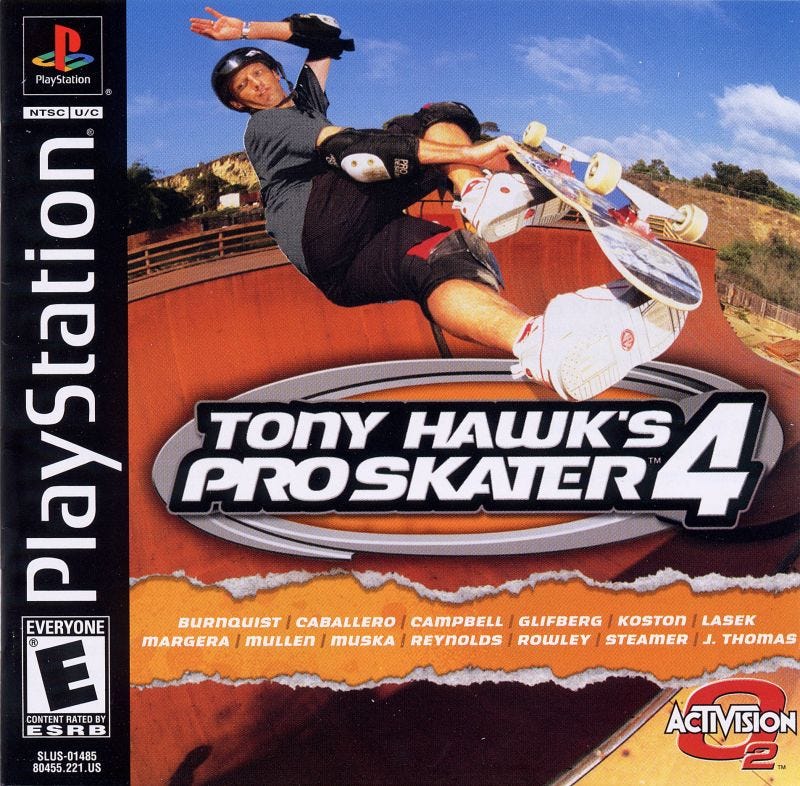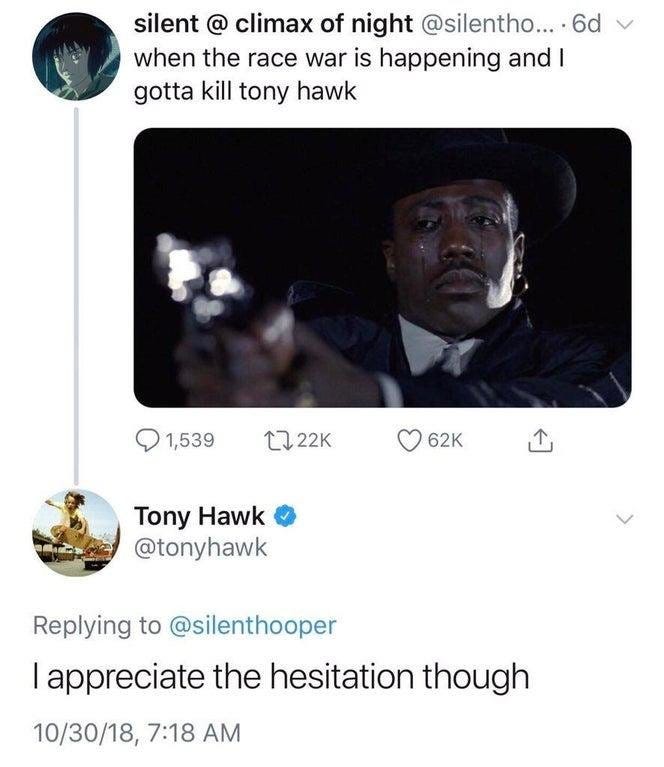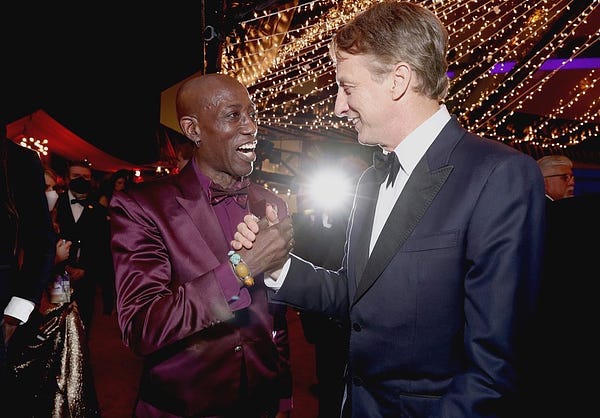How Tony Hawk Introduced a Generation to Old-School Rap
Let’s talk about Tony Hawk.
Tony introduced the world to skateboarding and inspired a generation of kids to become pro athletes. Without proper context, you’d think he would have nothing in common with hip-hop. Still, just beneath the surface, there’s a strong connection dating back to the late 90s when Sony approached Tony Hawk about making his own video game series: Tony Hawk Pro Skater.
At the time, I’d never heard of Tony (granted, I was like 8 years old), but his game series proved to be culture-shifting, and the impact translated into success for him, too. Check out this interview clip from a few years back where Tony talks about the (financial) success of the game:
IT WAS A CROSS GENERATIONAL MELDING OF CULTURES
Three cultures collided because of Tony Hawk: Gaming, Punk/Skateboarding, and Hip-hop.
To be clear, Hip-hop has always had roots in punk/skater culture: Lupe Fiasco’s breakthrough record “Kick, Push” was about skateboarding. Lil Wayne is a known skater with his own park built into his house,Tyler The Creator and Odd Future leaned really hard into the skater-punk culture at the beginning of their careers; and one of Pharrell’s nicknames is SKATEBOARD P.
Hip-hop has always embraced skateboarding, but it all came together on Tony Hawk Pro Skater.
It was transcendent and reflected deep cultural ties that are often overlooked and misunderstood by brands. If you’re still not convinced of the impact, take a look below where some of the people who commented on the video above talked about what Tony Hawk and his game did for them:
Long story short, Tony Hawk reached everyone. If you owned a Playstation, Tony Hawk Pro Skater was one of the premiere games to own. If you were a skateboarder, Tony Hawk Pro Skater was one of the premiere games to own. Hell, If your parents only allowed “E” rated games in the house, Tony Hawk Pro Skater was one of the premiere games.
AND, IT GAVE LEGACY ACTS AN OUTLET TO SHINE
For those unfamiliar with the term “legacy act,” it refers to a music act that has entered the latter stage of their career. Most musicians who hit the scene in the 90s & even the early 2000s would fall into this bucket. As such, it is difficult for them to generate the level of exposure that they initially got at their peak. It’s even more difficult for them to reach a new audience.
That’s where Tony Hawk comes in.
For many players who followed the series, Tony Hawk’s Pro Skater 2 introduced them to legacy acts like Public Enemy. Public Enemy’s “Bring The Noise” could be heard blaring through the game at any given moment. Take a look at this gamer for context:
And for me personally, Tony Hawk Pro Skater 4 was the introduction to two incredible legacy songs: “Mass Appeal” by Gang Starr & “Express Yourself” by N.W.A. Both of which are well before my time.
However, playing this game for hours trying to beat the same mission fueled nostalgia. And that ultimately led to records like “Express Yourself” & “Mass Appeal” becoming the sounds of many millennials' childhoods even though they were released in the ‘80s!
Not many brands, let alone games, can make this type of claim.
Think about how many brands from today can say that they’ve effectively reached young people using IP created almost 40 years ago. There aren’t many, if any.
THE AFTERMATH: THPS GAVE TONY HAWK A PLACE IN BLACK CULTURE
Tony’s Hawk’s relevance today in Black culture is largely due to his video game, and fans still remember, especially on Black Twitter. If you’ve ever been on Twitter during the shenanigans, than you’ve probably seen this meme before:
This playful exchange featuring a picture of Wesley Snipes’ character Nino Brown from New Jack City, is just a reminder of the joy that Tony Hawk sparked in the lives of many millennials, especially Black millennials during their childhoods. And like most things in life, this meme came full circle:
Life is indeed good, Mr. Hawk. Life is good…
Catch y’all next week.
Peace.









